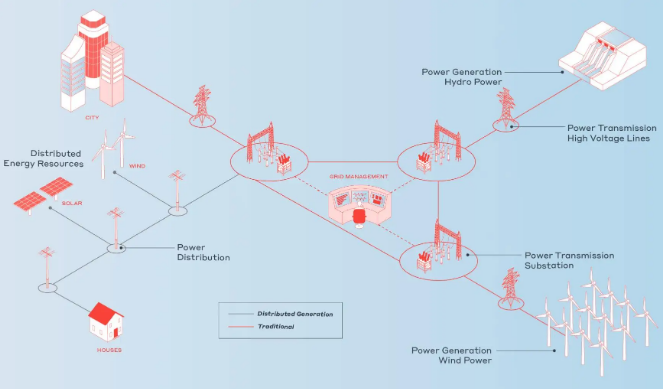Germany’s Central Infrastructure Authority has presented plans to increase its high-voltage transmission grid infrastructure from 440 kilometres of high-voltage lines to 900 kilometres by the end of 2023.
The Federal Network Agency also wants to approve a total of 2,800 kilometres of high-voltage lines by the end of 2024 and 4,400 kilometres by the end of 2025. The expansion of its power infrastructure is intended to help effectively connect northern Germany, which has the largest wind power assets, to the south and west, providing greater power capacity to the country’s largest industrial areas. The agency did not specify how much the grid upgrade would cost, or how it would be paid for.
The German government also plans to digitise the grid, particularly at the low-voltage or distribution level, through a new legal framework for smart grids, which was adopted in January and came into force at the end of May. The Law on the Operation of Metering Points stipulates that 20% of smart meters will be rolled out by the end of 2025 and 50% by the end of 2028. By 2032, smart meters should become the basic standard in German households.
Digital grids are becoming increasingly important as countries seek to accommodate increasing amounts of variable renewable energy capacity. Smart meters installed in consumers’ homes are a key part of this. Their mandatory introduction aims to improve the efficiency and reliability of the country’s electricity system through communication links, thus providing feedback between consumers and energy suppliers. The rollout of smart meters has been slow in Germany compared to other EU member states.In October 2022, Economy Minister Robert Habeck announced that he would accelerate the installation of smart meters across the country.
Germany’s grid expansion is also crucial to achieving its ambitious electrification targets. By 2030, the country wants 80% of its electricity to come from wind and solar power.
The expansion of renewable energy sources, the increased use of electric vehicles in the transport sector and heat pumps in buildings require smart connections between generation and consumption, Federal Minister for Economic Affairs and Climate Protection Robert Harbeck said in a statement in May. Our future energy systems will become more flexible and therefore more complex, and for this we need smart meters and the digitalisation of the energy transition.





